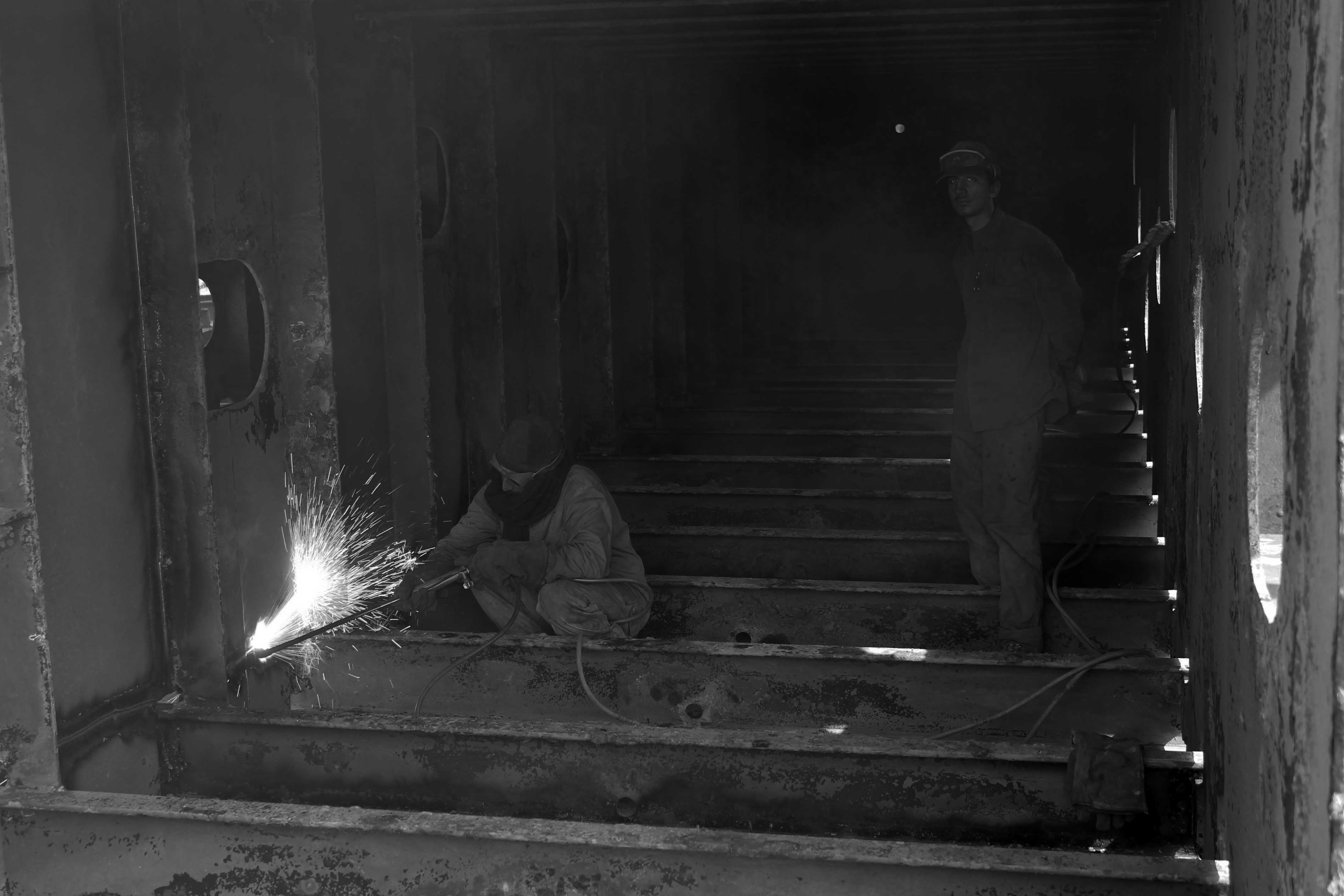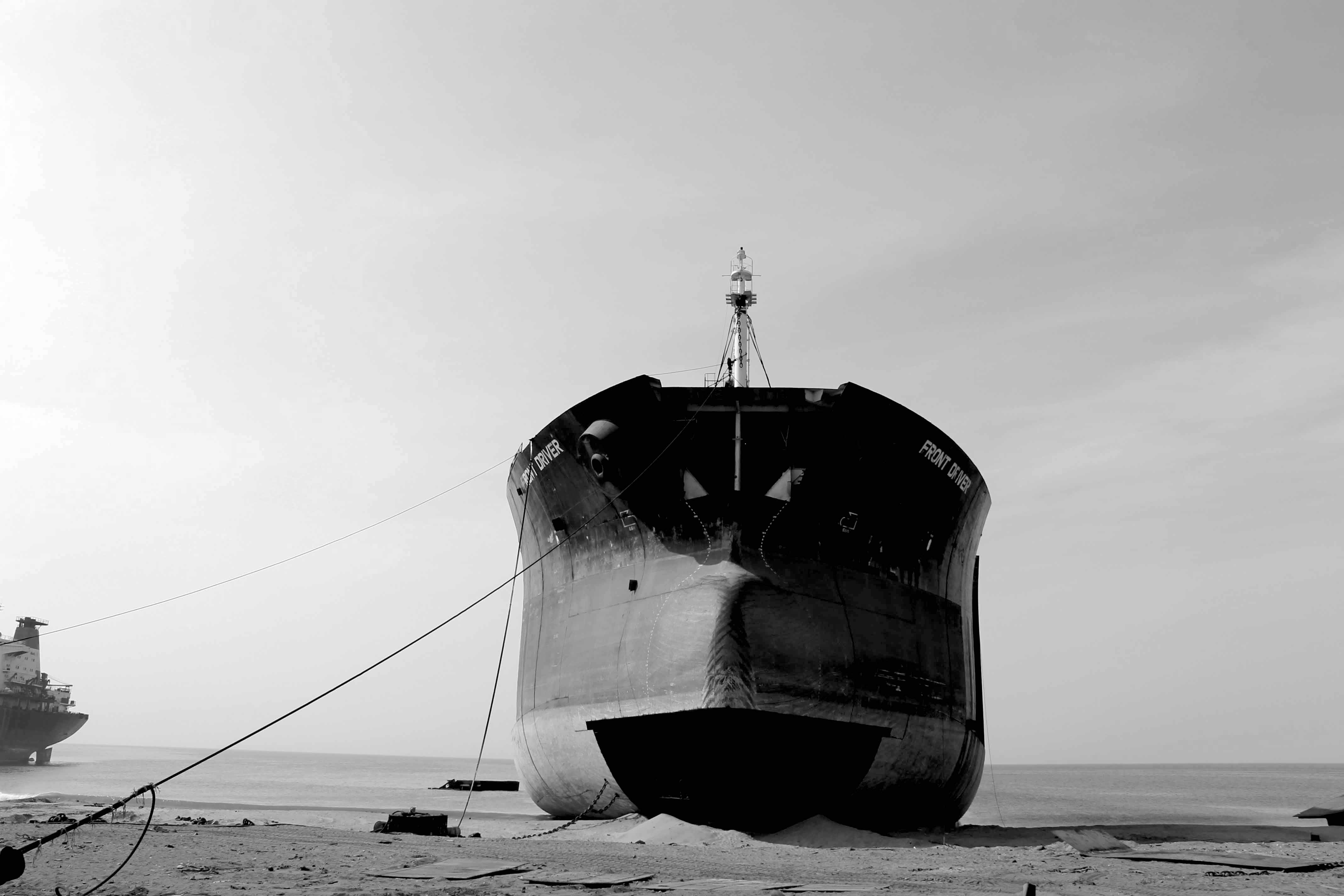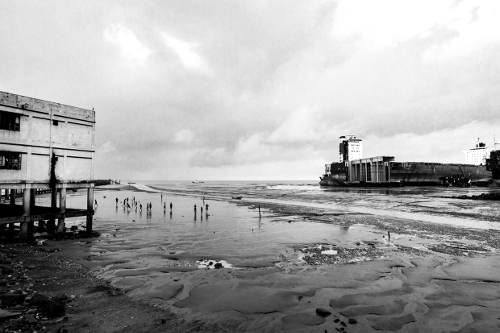Ignoring industry leaders and human rights and environmental organisations, ship owners continue to profit from dangerous and dirty shipbreaking practices on South Asian beaches in 2015, according to new data released today by the NGO Shipbreaking Platform. 768 large ocean-going vessels were sold to the scrap yards last year. 469 were broken on the beaches of India, Pakistan and Bangladesh where shipbreaking yards do not provide fundamental labour rights, ignore international waste trade law, and fail to respect international environmental protection standards.
One of many accidents that killed or maimed shipbreaking workers last year was a major gas explosion at Shitol Enterprise, a shipbreaking yard in Bangladesh. A gas cylinder burst killed four workers immediately and severely injured another four. The vessel they were breaking was sold to Shitol Enterprise by the Greek shipping company Universal Ship Management Corporation, and sailed under the flag of St. Kitts and Nevis, a typical low-cost, end-of-life flag of convenience. Greek owners by far outstripped ship owners of other nationalities by having sold the most end-of-life vessels to dirty and dangerous shipbreaking sites in South Asia, and for the first time in many years, Bangladesh was the world’s number one destination for scrap ships.
DUMPERS 2015 - examples of particularly bad practices
The worst dumper prize goes to IDAN OFER, son of shipping magnate Sammy Ofer. Idan Ofer owns QUANTUM PACIFIC GROUP and has a controlling stake in Israel's largest publicly traded company, ISRAEL CORPORATION. Combined, these shipping companies sold the highest number of vessels for substandard breaking operations in 2015: nine in total, with six of them going to Bangladesh, where conditions are known to be worst.
GREEK SHIP OWNERS sold the most ships to South Asian shipbreaking yards in 2015, with 87 ships in total. Since the NGO Shipbreaking Platform started to compile data on world-wide ship dismantling practices in 2009, Greek shipping companies have unceasingly topped the list of owners that opt for dirty and dangerous shipbreaking. Backed by the Greek government, they continue to refuse liability for the damage done to workers and the environment in South Asia.
Despite being part of several sustainable shipping initiatives and boosting environmentally friendly technologies on-board operational ships, well-known South Korean shipping companies such as HYUNDAI and HANJIN; Taiwanese container giant EVERGREEN; and Japanese companies including MOL, K-LINE and the TOYOTA owned TOYOFUJI sold vessels for breaking in Bangladesh in clear contradiction of their own company values and standards. SOUTH KOREAN SHIP OWNERS sold 27 ships exclusively to South Asia, mostly to Bangladesh. Also JAPANESE SHIP OWNERS sold exclusively to South Asia, many to Bangladesh.
German shipping company NORDDEUTSCHE VERMÖGEN sold three vessels to the beaches of India and Bangladesh – the Northern Glance, the Northern Diversity and the Northern Vitality. The latter had been arrested in the port of Wilhelmshaven in Germany in 2012 to prevent an imminent illegal export to India. Despite awareness of the poor conditions at the South Asian shipbreaking yards NORDDEUTSCHE VERMÖGEN did not care about their vessels hitting the beaches, one of which went to Bangladesh - no lesson learnt. See our latest blog-post on the case here.
Polish government-owned POLSTEAM sold ships to Bangladesh and Pakistan – and refused to take responsibility for their own actions following an alert sent by the NGO Shipbreaking Platform. Worse, the Polish government has likewise not acted.











